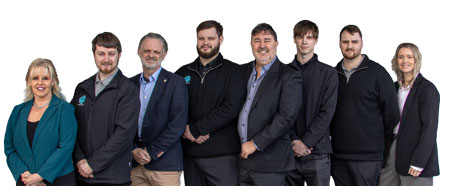Your computer, in today’s world, is far more than a simple tool. It’s your portal to the rest of the world! Hundreds of millions use the internet on their a computer every single day to talk to their loved ones, stream hours of content, or just scroll their social media feeds. What’s really special about computers and the internet is that they’ve become a crucial part of almost everything that we do in our lives.
In that sense, they have become irreplaceable in our daily routines. Now, it’s common knowledge that if you’re dependent on a solitary thing for everything that you do, it’s important for that one thing to be foolproof and safe. A computer connected to the internet can hardly be referred to as safe; there are way too many risks on the internet for a computer to be considered safe. When you are connected to the internet, you are connected to OTHER computers, and they may not be safe.
Either way, whether you think your computer is safe or not, it’s very important to make sure that you’re following these tips to keep yourself safe on the internet:
ONE - Using an antivirus
An antivirus is by no means a new product. In fact, it's been useful for the longest time, and antivirus companies are some of the biggest software companies in the world. The name of their game is very simple: to sniff out any malware in your computer and remove it before it impacts your computer negatively.
By using an antivirus, you’re essentially building a wall of protection which saves you from harmful viruses and ransomware. With an antivirus active, you can be rest assured that the chances of your data being stolen are very low.
Be aware that may antivirus companies seem more interested in marketing than research and development, as evidenced by the hard sell they give you with a lot of scare tactics. A sure sign the product is weak. Many AV products these days can slow your computer or laptop down significantly, so we’d recommend you avoid Norton, McAfee or Trend in particular. We do recommend Microsoft Defender and Malwarebytes.
TWO - Using a VPN
Perhaps the most overlooked software in today’s world, a VPN is an interesting bit of software to improve your safety on the internet. Whether you are an organisation trying to sell something to someone, or an individual scrolling past the vast sea of content available on the internet, a VPN will help protect your identity and increase your privacy. It will protect from prying eyes and obscure your identity on the internet.
A VPN bounces your IP address and masks it from anyone trying to access your location. In essence, with a VPN, you are covered and shrouded by your own virtual private network. This private network can save you from getting scammed, it can save your data from unwanted hands and, in severe cases, even save your life by hiding your location.
THREE - Being Cautious with Phishing
This tip requires a bit more effort than the previous ones. The previous tips only required you to install software and keep it running. This one requires you to consistently stay on your toes when surfing the internet or checking emails on your computer. Even if it wasn’t for phishing or pharming, staying on your toes on the internet is generally just great advice overall. If it’s too good to be true, it probably is!
Phishing refers to a normal looking email with a scam link. Pharming refers to a normal looking website with scamming intentions. If you can spot these and steer away, your stay on the internet would be very successful and relatively safe.
FOUR – Update!
Always update your computer. Especially antivirus and operating system updates (for Microsoft computers this is the Windows updates, for Apple this is the Apple OS Updates).
Sometimes, very rarely, updates can break your computer, which is very frustrating. But despite this small risk, it’s worth doing the updates. Let them run.
Hope this helped you. Give us a call if you want more info.
For more reading check out
https://www.chnz.co.nz/blogs/phishing-computer-service
https://chnz.co.nz/blogs/phishing-computer-repair
Or this video


